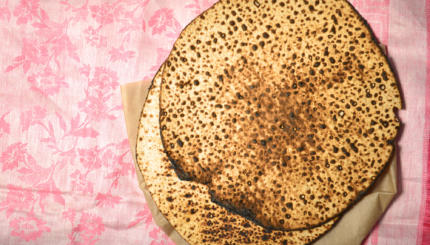The Mishnah, an ancient law code that forms the core of one of Judaism’s most holy books, the Talmud, provides a surprisingly concrete blueprint for Jewish life. Pirkei Avot 5:21 teaches us that at the age of 5, a child should be immersed in learning Torah; a 10-year-old must begin to learn Mishnah; an 18-year-old must go to the huppah and get married and at 20 he must pursue a livelihood. A 90-year-old is bent over and at 100 it is as though he is dead.
These milestones no longer reflect our modern Jewish community. Perhaps a child can strive to learn Torah by age 5, but what about the child who has a learning disability and cannot master text? What about the men and women who are not married by 18, or 25, or 35? The divorcee? The older person who is a vibrant senior and not bent over? Where do they fit in?
Rabbinic literature offers a blueprint for how to embrace individuals outside of the expected norms of this mishnah through its discussion of slavery. Slaves are categorically outsiders. A slave, as rabbinic tradition explains, is exempt and even forbidden from many of the milestones listed in our Mishnah, from Torah study to marriage. The very essence of a slave is someone who does not fit into the societal guidelines laid out in Pirkei Avot.
And yet, the fact that we were once slaves in Egypt is fundamental to our identity.
With your help, My Jewish Learning can provide endless opportunities for learning, connection and discovery.
The Torah says: “You shall not pervert the judgment of a proselyte or orphan, and you shall not take the garment of the widow as a pledge.” Then the next verse says: “You shall remember that you were once slaves in Egypt.” (24:17-18) We too, are like slaves.
Remembering and reliving the Egypt experience fosters sensitivity to the vulnerable and provides the impetus for concern with the plight of the stranger. When kindness towards the stranger is mandated in Torah, it is often followed by the statement, “you were strangers in the land of Egypt.” Protecting the vulnerable is such a primary concept that the Talmud (Bava Metzia 59b) notes that the law to protect the stranger is mentioned no less than 36 times in the Torah — more than any other law mentioned in the Torah, including the commandments to love God and to observe Shabbat.
Rabbi Joseph Soloveitchik, in “Reflections of the Rav,” explains that “the Egyptian experience may therefore be regarded as the fountainhead and moral inspiration for the teaching of compassion which is so pervasive in Jewish law.” The goal of Jewish law is to cultivate people of compassion.
It is this empathy that compels us to remember that we were slaves in Egypt. We’ve all been in the position of the lonely and vulnerable. The medieval sage Rashi, based on the Mekhilta, a compilation of commentary on Exodus, explains that the terms “stranger, widow and orphan” are merely examples of a broader category of vulnerable people (Mekhilta on Exodus 22:21). They are symbols of the powerless and the oppressed. In essence, they are symbols of us. And haven’t we all been in the position of feeling powerless and oppressed?
This leads to the quintessential reason for the imperative to remember that we were once slaves in Egypt: It reminds us of people who are out of sync with communal standards, and makes us more aware of and sensitive toward people who do not fit in. If there is anyone who should understand what alienation means, it is us, for we too were once slaves. The eved (slave) resides in all of us. Thus, we are commanded to remember every day that we should look out for the downtrodden, the poor, the lonely and the vulnerable. Just as we once were out of sync with society, so too, today, we must be sensitive to people who are out of sync with communal standards.
A community must respond to individuals’ specific and special needs. To that end, I would like to incorporate into our mishnah from Pirkei Avot the sensitivity that halakhah mandates. Our adapted mishnah might say:
“A child who reaches the age of 5 must be encouraged to marvel at the world. At 10 we should learn according to our ability; at 12 and 13 a child must begin to take responsibility for others. At age 15, we should learn Talmud and derech eretz, the laws of how to be a good person; at 18 we should seek companionship, knowing that there are many relationships that can nourish us. At 20, we must learn how to pursue happiness through reaching out to others. At 30 we must make an extra effort to visit the homebound and those in the hospital; at 40 we must be sensitive to the needs of the divorcee or the unmarried. At 70, we must reach out to those who are older than us. At 100, we should look backward at our full lives, and thank God for all that we are blessed with.”
The test of a community is not how it receives the most powerful, but how it welcomes the most vulnerable. The goal should be to admit those who are powerful alongside those who are not; we must accept those who fit the paradigm of communal standards, but also those who are out of sync with communal norms.



